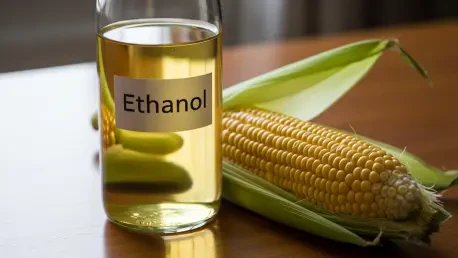The exclusion of ethanol from the recent EU-US trade agreement poses significant questions about strategic interests and goals in the renewable energy sector. Ethanol plays a critical role in Europe by contributing to energy independence, boosting the agricultural economy, and supporting environmental objectives through substantial greenhouse gas (GHG) reductions. With multiple European biorefineries ensuring the sustainable production of ethanol, the decision to keep it out of the trade deal highlights a crucial point: the EU’s resolve to protect and prioritize its renewable sector over making concessions for international agreements. This stance reflects a broader agenda of maintaining industrial autonomy and securing the economic landscape in the face of global challenges.
Overview of the Ethanol Industry
The ethanol industry, particularly within the EU, serves as a cornerstone for renewable energy initiatives, environmental sustainability, and agricultural advancement. It stands as a critical segment contributing to the decarbonization of transportation and playing a fundamental part in reducing reliance on fossil fuels. This industry comprises numerous biorefineries that process agricultural products into renewable fuel, marking its relevance to both farmers and industrial stakeholders. Tight regulations guide its growth, with European producers facing stringent standards in sustainability, unlike their American counterparts, who often benefit from government subsidies and enjoy more relaxed environmental scrutiny. The unique operating conditions make the European ethanol industry an exemplar of sustainable practice, although they also pose distinct competitive challenges.
Key Trends and Market Dynamics
Influential Trends in the Ethanol Industry
Emerging technologies and shifting consumer attitudes are shaping the ethanol market trajectory. Advances in production techniques, notably in bioengineering, enhance efficiency and sustainability, fostering a higher yield from the same input resources. Concurrently, there is an increasing consumer preference for eco-friendly products, pushing industries to adopt greener practices, thus supporting the demand for ethanol. This evolving landscape also opens up new opportunities, such as advanced biofuels derived from non-food resources that could further bolster the industry’s growth and influence.
Market Performance and Projections
The market trajectory for ethanol within the EU shows promising growth, driven by strong regulatory support and a firm commitment to sustainability goals. Current data reveal an upward trend in production capacity and consumption, fueled by stringent climate policies. Projections indicate continued expansion, with expectations of increasing demand as nations strive to meet carbon neutrality objectives. Analysts forecast that the market will maintain robust performance, strengthened by technological advancements and increasing policy support that further integrate ethanol into the energy mix.
Challenges and Barriers
Despite its potential, the ethanol industry faces notable challenges. Technological constraints, particularly in scaling up advanced biofuel technologies, continue to hinder rapid progress. Furthermore, energy-intensive production processes under Europe’s high energy costs place strain on profitability and competitiveness. Regulatory complexities add another layer of difficulty, as the industry must navigate stringent compliance requirements while seeking innovative pathways to enhance efficiency. Addressing these issues necessitates strategic investments in technological R&D and advocating for policy reforms that level the global playing field.
Regulatory Influences and Impacts
Regulation profoundly impacts the ethanol industry, dictating production standards, environmental compliance, and market entry conditions. Across the EU, rigorous laws ensure that ethanol production aligns with high sustainability benchmarks, mandating reductions in GHG emissions and adherence to renewable energy quotas. The evolving regulatory environment poses both a challenge and an opportunity, as compliance costs can be burdensome but also spur innovation and quality improvement. As regulatory frameworks continue to evolve, navigating these changes remains crucial for industry players striving for competitive advantage and sustainability leadership.
Future Perspectives and Industry Outlook
Looking ahead, the ethanol industry is poised for transformative developments driven by technological innovation and evolving consumer expectations. Emerging technologies, such as cellulosic ethanol production, promise to enhance sustainability by utilizing non-food crop resources. Potential market disruptors, including shifts in global trade policies and varying energy market dynamics, could redefine competitive parameters. Meanwhile, consumer trends toward sustainable and ethical consumption will likely intensify demand, positioning ethanol as a key component in the energy transition. The industry’s future will hinge on alignment with legislative directives and the broader economic context, with innovation remaining its central pillar.
Conclusion and Strategic Recommendations
Reflecting on the current state of the ethanol industry, it is clear that strategic protectionism within trade deals allows the EU to fortify its renewable energy sector. To capitalize on emerging prospects, industry participants should focus on advancing technological capabilities and advocating regulatory frameworks that foster competitive equity. Improved collaboration between stakeholders will be critical to overcoming challenges and achieving sustainability benchmarks. This proactive approach will ensure the ethanol industry’s continued relevance and contribution to energy solutions that address both environmental and economic imperatives.









